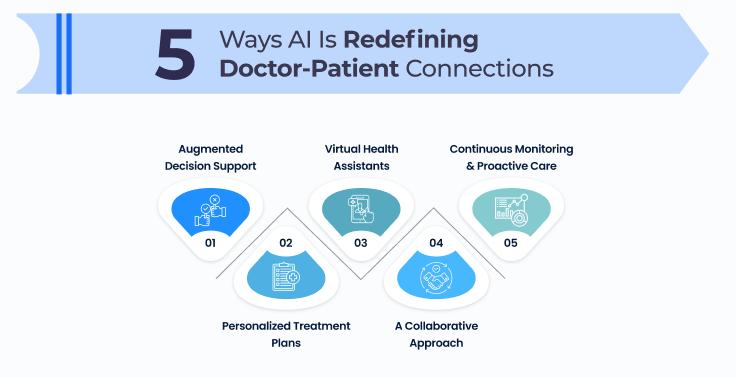In recent years, the U.S. federal government has taken strong steps to regulate AI in healthcare to make sure AI systems are safe and fair. In 2024, many new rules and guidelines came from agencies like the Food and Drug Administration (FDA) and the Department of Health and Human Services (HHS).
The FDA finalized guidance on Predetermined Change Control Plans (PCCP) for AI technologies. This sets rules on how AI software that learns and changes after being put into use should be controlled and updated safely. This helps keep algorithms working well and prevents unintended harm when upgrading or improving AI models.
The HHS also created rules to make sure AI algorithms are clear and fair. These rules try to reduce bias and keep patients safe. They come from Executive Order 14110, which calls for more federal oversight of AI systems in healthcare. Agencies want AI developers to make honest claims and provide clear proof that their products work well.
At the same time, federal privacy laws like HIPAA and state laws such as California’s Consumer Privacy Act (CCPA) continue to create strict rules about how protected health information is handled by AI systems. These privacy rules are very strong and remain a top concern for healthcare AI developers to avoid legal problems.
State-Level Regulations Impacting AI Adoption
Besides federal rules, states have their own laws that control AI use in healthcare. California, Utah, and Colorado have some of the strongest rules that affect daily work in medical offices.
-
California’s AB 3030 starts on January 1, 2025. This law makes healthcare providers tell patients when generative AI is used in clinical communications involving patient information. Patients also must be able to contact a human provider directly. This keeps important human control in the process.
-
Utah’s AI Policy Act says healthcare groups must tell patients if they are talking to AI. Patients can choose not to interact with AI. This rule started in May 2024 because of concerns about transparency and patient consent.
-
Colorado’s AI Act begins January 1, 2026. It focuses on important AI systems, many used in healthcare, and requires strong controls to manage them safely. The law asks for detailed disclosures and oversight.
Healthcare groups using AI tools like Simbo AI’s phone automation or answering services must prepare to follow these state laws. When AI is used nationwide, companies must meet the strictest rules to keep operations safe and legal everywhere.
The Role of Responsible AI Governance in Healthcare
Responsible AI governance means more than just following laws. It is about managing AI systems in a way that is ethical, clear, and safe throughout how they are used.
In 2025, research by Papagiannidis, Mikalef, and Conboy described responsible AI governance in healthcare as having three main parts:
-
Structural Practices: These are the parts of an organization made to oversee AI. It means having teams or groups that watch AI use, manage risks, and apply policies.
-
Relational Practices: This is about communication and teamwork among everyone involved — patients, developers, healthcare workers, and regulators — so all understand how AI is used and what risks it has.
-
Procedural Practices: These are the processes and checks needed to run AI properly, like regular bias audits, safety tests, and performance reviews.
Since AI is important in giving care, responsible governance makes sure AI helps patients rather than harms them. Many organizations find it hard to put AI principles into real action.
Ensuring Transparency to Build Patient Trust
Transparency is very important when using AI in healthcare. Patients and doctors need to know when AI is used, what it does, and how decisions are made.
Transparency means honestly explaining what AI can and cannot do. There should be no false claims or unclear statements about AI’s abilities. Rules from 2024 ask AI developers in healthcare to keep clear documents and tell patients when AI is involved.
For medical office managers, this means that any new AI phone systems or answering services must clearly tell patients about AI use. They must also assure patients a human is available when needed.
AI and Workflow Automation in Healthcare Administration
AI is growing fast in automating front-office work in healthcare. Companies like Simbo AI focus on automating phone answering tasks. These include scheduling appointments, answering patient questions, sending reminders, and other communication jobs. These systems can lower the work burden on staff and speed up responses, which is important in busy clinics.
AI automation helps healthcare providers by:
- Lowering staff workload so employees can focus on harder or more personal patient care.
- Making sure information is given in a consistent way with fewer mistakes.
- Increasing patient engagement by giving quick and always-ready communication options.
- Following privacy rules by programming responses that protect patient privacy and meet HIPAA and state laws.
But using AI for automation needs careful checks. Regular audits are needed to find bias or errors. AI answers must be culturally proper, correct, and follow changing rules.
Human Oversight: A Non-negotiable Aspect of AI Use
Federal and state rules clearly say humans must watch AI when it is used in healthcare, especially for risky situations. AI can help with routine jobs, but decisions that affect medical care or sensitive patient info need human review.
This rule protects patients from wrong or harmful automated decisions and keeps ethics strong. Medical managers and IT teams must build AI systems that let cases easily switch from AI to human help when needed.
For developers like those at Simbo AI, this means making sure patients and staff can move from automated answers to live people quickly.
Preparing for Compliance in 2025 and Beyond
Healthcare groups and AI creators face complex and changing rules. Important steps to follow include:
- Making and updating AI governance plans that cover roles, ethics, and monitoring.
- Doing regular checks for bias and safety to find and fix errors or unfair outcomes.
- Keeping up with new federal and state laws to change policies and disclosures quickly.
- Making sure AI handles protected health info safely under HIPAA, CCPA, and other laws.
- Communicating clearly with patients about AI and offering ways to contact humans.
- Designing AI systems to balance automation with needed human control.
National and International Policy Considerations
Though this article focuses on the U.S., healthcare AI makers also need to think about international rules. The EU’s AI Act has strict rules about governance and telling users about AI. U.S. companies working with patients in Europe must follow these rules too. This adds to the challenge of following laws.
This global aspect means healthcare AI providers should apply the highest standards of transparency and governance wherever their systems work.
As AI keeps advancing in healthcare, medical office managers, owners, and IT leaders should pay close attention to these governance, compliance, and automation changes. Companies like Simbo AI show how these trends work in real settings by offering AI phone automation that improves efficiency and meets rules. Proper planning and following governance steps will be very important for safe and trusted AI use across U.S. healthcare systems.
Frequently Asked Questions
What significant developments occurred in AI healthcare regulation in 2024?
2024 saw a surge in AI healthcare investment, regulatory actions by federal agencies like HHS and FDA, and new compliance requirements to ensure patient safety and algorithmic transparency.
How did federal agencies respond to AI in healthcare?
Federal agencies, under Executive Order 14110, established new regulations, including FDA’s guidelines for AI technologies and ONC’s HTI-1 Final Rule to ensure algorithmic transparency.
What state-level actions were taken regarding AI regulation?
States like California and Utah implemented regulations requiring disclosure of AI system usage in healthcare, while Colorado established the Colorado AI Act to govern high-risk AI systems.
What are the implications of the EU AI Act for U.S. companies?
The EU AI Act imposes disclosure and governance obligations on AI developers that apply to U.S. companies servicing EU citizens, affecting their compliance strategies.
What are key concepts for healthcare AI developers in 2025?
Key concepts include strengthened AI transparency requirements, the need for AI governance programs, matching product claims with actual capabilities, and ensuring human oversight for high-risk decisions.
What compliance strategies should healthcare AI companies adopt?
Companies should review Terms of Use, conduct bias audits, establish AI governance, and ensure compliance with both federal and state privacy laws, especially in handling sensitive data.
What is the importance of algorithmic transparency in AI healthcare?
Algorithmic transparency is crucial for building trust with patients and regulatory bodies, mitigating discrimination risks, and ensuring that AI tools comply with existing healthcare regulations.
How can companies navigate the evolving regulatory landscape?
Companies should stay informed about federal and state regulatory changes, adjust their compliance strategies accordingly, and potentially aim for the strictest standards to facilitate national scaling.
Why is understanding federal and state privacy laws critical for AI healthcare?
Adherence to federal laws like HIPAA and state laws such as CCPA is vital to protect patient information, enhance trust, and avoid legal repercussions related to data privacy.
What role does human oversight play in AI healthcare solutions?
Human oversight is mandated by various regulations and essential for high-risk decisions in healthcare, ensuring that interventions are clinically valid and ethically responsible.
The post Future Trends in AI Healthcare: Key Concepts for Developers in 2025 and Beyond Regarding Transparency and Governance first appeared on Simbo AI – Blogs.







